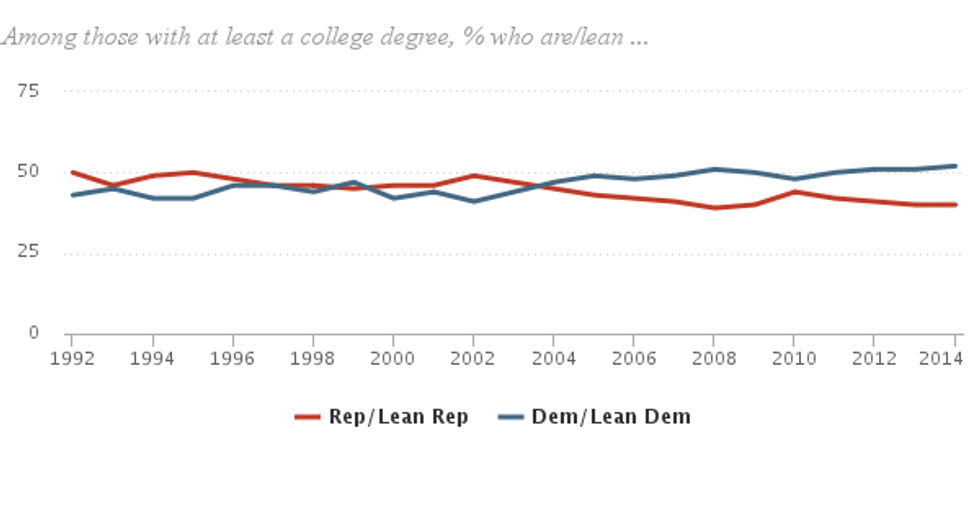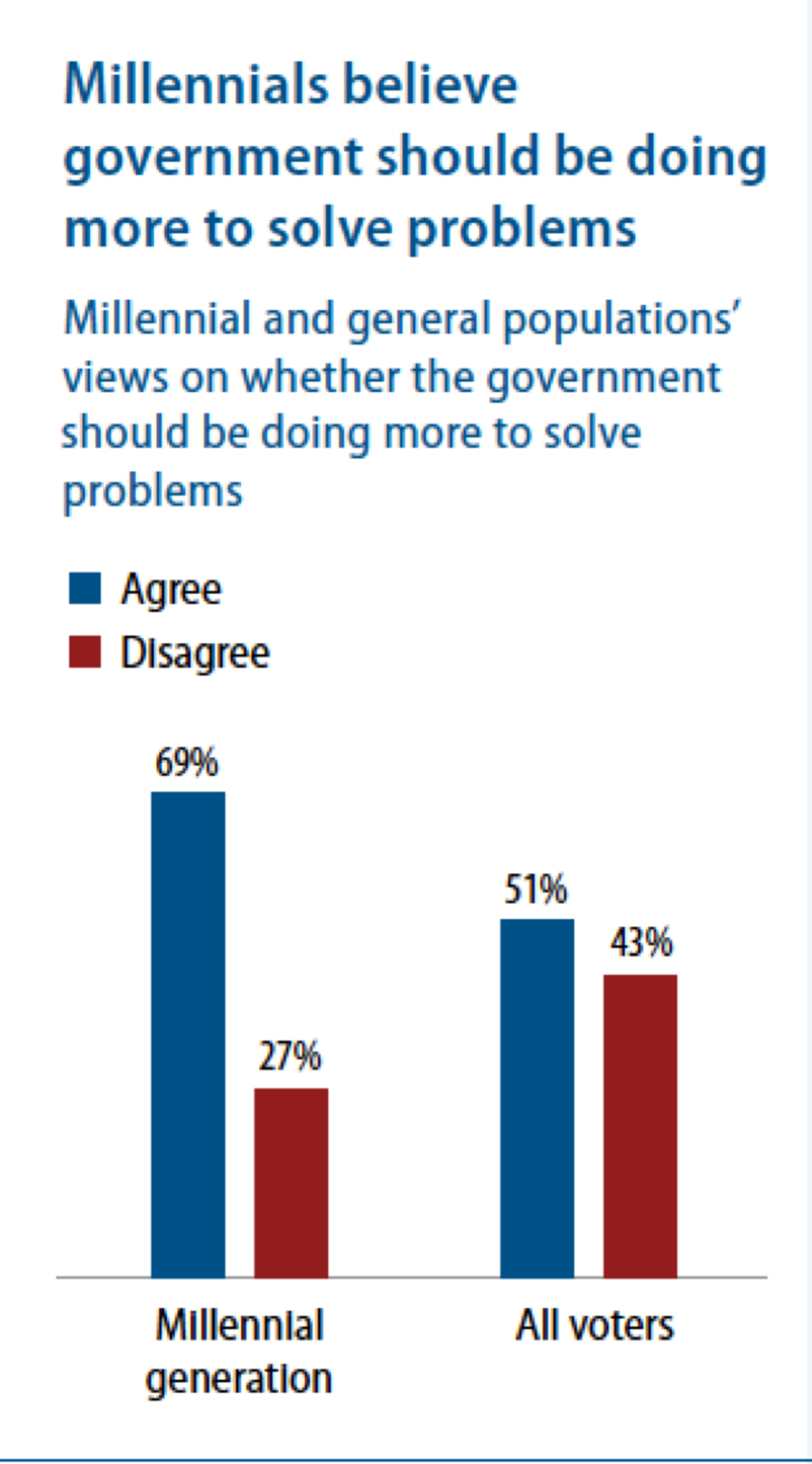I, like many others in the country, have been doing a lot of soul-searching during this election season. I have always fallen in the liberal/progressive side of the political spectrum as long as I’ve been politically conscious, but recently I’ve been wondering why that is. The title of the article might be misleading to some—I don’t mean to ask why I choose to be a liberal, but rather, what circumstances of my life, factors that are beyond my control, favored one ideology over the other.
This proved to be very difficult for me to dissect, primarily because at this stage of my political consciousness, my stance on most civil issues are so deeply ingrained that I find it hard to pinpoint when and how those beliefs arose. My positions on a lot of hot-button issues pertinent to this election seem logically and ethically obvious to me, such as climate change, gender equality, and taxation. So naturally it was difficult to deconstruct the outside influences that may have contributed to those positions. We are all products of our circumstances, and I was curious if hard data could shed light into what the most important factors that influence personal politics are.
©
Pew Research CenterThis introspection led to some particularly interesting data collected by the Pew Research Center in 20151, which sought to categorize respondents based on their reported party affiliations and various socioeconomic factors. I was interested, but not surprised to see that I fall in the majority group for the Democratic party under almost all categories. At the risk of provoking the better-informed political scholars out there, I am referring to liberals and Democratic Party affiliates as one group in this article, in so far as it applies to myself. I was especially interested in four specific socioeconomic criteria: education, income, generation, and community. On a personal level, I felt like these factors had the most significant role in shaping my ideologies.
Since the publication of a previous, more detailed report by the Pew from 20052, data has supported a correlation between education level and Democratic Party affiliation in America. According to the more recent 2014 data, 52% of those with a college degree lean towards Democrat, versus 40% towards Republicans. However, low income also has a strong correlation with Democratic Party affiliation: 54% of respondents earning below $30,000 lean towards Democrats. This was interesting because data shows that in recent years, the vast majority (80%) of high-school graduates who enrolled in college came from high-income households3. I wondered if there was some common factor that was tying the two groups together in favor of Democrats.
Next, I looked at generation. Since 2002, most Millennials identify with the Democrats, and that trend remains consistent today. This result was unsurprising, both due to evidence and personal perspective. Millennials are the most progressive generation in America, according to the Center for American Progress4. In terms of community type, Republicans have larger support in rural areas (47% leaning towards Republicans versus 39% towards Democrats), whereas 57% of those living in urban areas lean towards Democrats. Again, I found the results unsurprising, and I had started to notice a pattern.
©
Center for American ProgressAll the criteria that seem to correlate with Democratic Party affiliation, and certainly the ones that drove me, seem to be a result of exposure. Exposure not only to a varied range of different ideas and values, but also to diverse sets of people who all come from different backgrounds and lead lives very different to my own. Universities are a great example where large groups of people from diverse geographies, income level, cultures and ethnicities come together and interact. Colleges are well-known (or notorious, depending on your viewpoint) for “breaking people out of their shells.” Speaking from personal experience, that was certainly the case for me. A low income level is another issue that played a role in exposing me to the challenges faced by other people. As immigrants, my family started off with very little when we first moved to America, and we all went beyond our natural comfort-zones to supplement our household income. Being part of the Millennial generation also means being a part of the internet and social media revolution. It goes without saying that the degree of exposure from living in this era is boundless. Admittedly, people still have control over whom they want to interact with, but in the age of instant communication, live media, and an ever-expanding network of plugged-in human beings inherently creates an environment of mass exposure. Finally, living in cities most of my life has exposed me to enormous diversity of culture, class, and ideology. I was born and raised in Dhaka, the capital city of Bangladesh which has a population of seven million. From there, I moved to the small town of Hattiesburg, Mississippi, where I went to college. And from there I went to Washington, D.C., and now Berkeley, California. All of those places have exposed me to an eclectic variety of people.
Being exposed to so many backgrounds and ideas most likely instilled in me the belief that a democratic government should play a greater role in solving problems, and invest more in helping citizens who are disenfranchised. Many policy positions adopted by the Democratic Party fall into this category. I support universal healthcare because I believe the government is responsible for the health of its citizens. I am also in favor of using tax money to continue social welfare programs and subsidize college educations for those who can't afford it, even if these don’t benefit me directly. These beliefs probably came as a result of a more intimate understanding of how many people all over the country do not share the same privileges as others, because I my own experiences have been similar. Of course, this is all personal reflection. The factors that drive my political consciousness will not apply to everyone else, or even lead to the same ideology necessarily. This election season has been unique for many reasons, one of which how emotionally-charged the race has been. Now that it draws to a dramatic finale, we have four years until we have to really think about political dichotomies and voting preferences. In the meantime, I invite everyone to take a step back and take a moment for introspection. It’s always healthy to question one’s beliefs, but I think it would be really fascinating to identify the key external factors that molds you into the political being you are today.
A special thanks to Melissa Metcalf, Gabriella Martini, and Justin Roncaioli for enlightening conversation and valuable input.
References:
- “A Deep Dive Into Party Affiliation.” Pew Research Center, Washington, D.C. (April 7, 2015). http://www.people-press.org/2015/04/07/a-deep-dive-into-party-affiliation/. Accessed November 5, 2016.
- “Beyond Red vs. Blue.” Pew Research Center, Washington, D.C. (May 10, 2005). http://www.people-press.org/2005/05/10/beyond-red-vs-blue/. Accessed November 5, 2016.
- “Percentage of recent high school completers enrolled in 2-year and 4-year colleges, by income level: 1975 through 2012 (Table 302.30).” Digest of Education Statistics, National Center for Education Statistics. U.S. Department of Education (2015). http://nces.ed.gov/programs/digest/d15/tables/dt15_302.30.asp?current=yes. Accessed November 5, 2016.
- Madland, David, and Teixeira, Ruy. “New Progressive America: The Millennial Generation.” Center for American Progress (May 13, 2009). https://www.americanprogress.org/issues/democracy/reports/2009/05/13/6133/new-progressive-america-the-millennial-generation/. Accessed November 5, 2016.























